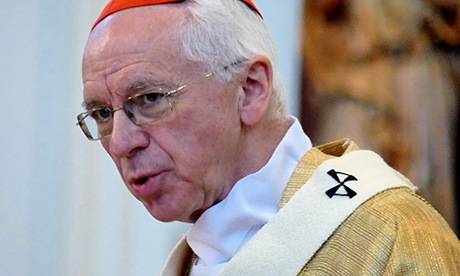Belgian Cardinal, Jozef De Kesel discusses with “New Europe” the role of the Catholic Church in modern Europe.
Today’s Europe, where pluralism and secularism have changed the dynamic between Europe’s citizens and their relationship with one of the continent’s oldest institutions.
What do you think it means to be Catholic in Europe today? What are the core values that a Catholic should represent?
We must remember that for centuries Europe has been a collection of Christian countries.
After antiquity, a Christian culture was established in Europe.
From the 17th century and during the Enlightenment, particularly during the French Revolution, little by little the Church found that Europe was no longer an entirely Christian society.
It is a pluralistic society, a secular society, where there are also other beliefs.
I believe that being a Catholic in modern Europe means being part of this scenario.
It is the desire to live together while respecting others.
The Church is not here to “reconquer lost ground”. This is not its mission.
To be Catholic is to be faithful to one’s convictions in an environment that has changed to a pluralistic society.
This implies respect for human being and his or her beliefs.
We must always be respectful of each other, to accept the person as he or she is, without wanting to impose ourselves on an individual person or on society.
However, we have a mission inside this society.
We have convictions and values that we want to defend.
It must also be noted that there is interfaith solidarity and this is the mission of the Catholic Church.
We stand in solidarity with all those who strive for a more just and more fraternal society.
If we fight for the respect of freedom of religion, it is because we agree with secularised society, but within this society, we have values to defend.
The Catholic Church does not oppose a secularised society.
Citizens have the right to believe or not to believe and I stand for that.
The Church is not here to “reconquer lost ground”. This is not its mission.
What are the challenges that the Catholic Church is facing nowadays in terms of its role in Europe?
Perhaps the biggest challenge for the Church in Europe, and it’s also an opportunity, because it helps us to rediscover our roots and our mission, is to wholeheartedly accept secularised society.
It must be understood that Christianity was, for a long time, the cultural religion in Europe.
Today this is no longer the case.
And it would be dangerous to go back because it is always dangerous to have one religious tradition that obtains a monopoly.
This is true for Christianity, for Islam…for any religion.
The Catholic Church must accept these new cultural circumstances.
It requires a certain conversion from the Church.
For me, personally, and I believe that also this is the case for many bishops in our Church, I see this as an opportunity as this forces us to rediscover ourselves and meet each other.
Some people say that the Catholic Church is looking for power, as in the past.
This is not true.
What we claim is the right to be who we are.
This applies to everyone, to all religions, and to non-believers too.
For us, for the Catholic Church, it was The Second Vatican Council that signalled a fundamental change regarding openness. Before Vatican II, the Church had trouble accepting modernity, but Vatican II said “it’s over, a dead end.
It’s fruitless and it’s not the truth”.
This is no reason to condemn the past, it’s just that the historical circumstances have changed. It’s not good to live life through nostalgia and for a past that is no longer possible. Continue reading
- Image: New Europe
Additional reading
News category: Analysis and Comment.




